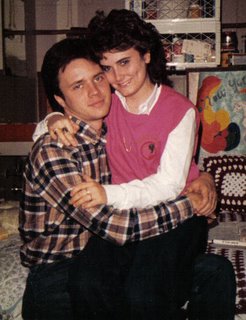It's Not Only Ok To Be Touchy, Feely, Snuggly, Wuggly....It Is Good For You!

Hold hands. Hug. Kiss in the morning. Kiss good night. Cuddling is not only good for relationships, but also helps reduce the physical effects of stress, reports USA Today of new research from the University of North Carolina-Chapel Hill's School of Medicine.
Just a little loving contact early in the morning before you dash out of the house can have protective benefits on your heart and blood pressure throughout the day, asserts psychologist and study leader Karen Grewen.
The experiment:
Under the direction of the UNC-Chapel Hill researchers, 100 adult volunteers, all of whom were married or long-term partners, held hands while watching a pleasant 10-minute video. Then they hugged for just 20 seconds. A second group of 85 people rested quietly without their partners. At the end of this time, all of them were asked to talk about something that happened to them recently that made them angry or upset. Typically, such discussion would cause an increase in heart rate and blood pressure.
The results:
Blood pressure rose dramatically in the group of people who had no contact with their partner--more than double the blood pressure rise of the "huggers."
Those who had no partner contact experienced an increased heart rate of 10 beats a minute, compared with just five beats per minute for the "huggers."
Face it, we're social beings. We need each other. USA Today reports that a different study from the Touch Research Institute at the University of Miami Medical School concluded that when we touch someone else it lowers the stress hormone cortisol. That sets off a chain reaction in our bodies. The dip in cortisol creates a boost in serotonin and dopamine, two chemicals that make us feel really good.
Still, the best touch of all is from a lover. Touch from friends can be helpful, but it doesn't have the same effect as a lover's hug or kiss or consoling pat, according to psychologist Kathleen Light, co-author of the UNC study.
The study findings were reported to the American Psychosomatic Society in Phoenix.
--Cathryn Conroy


0 Comments:
Post a Comment
<< Home